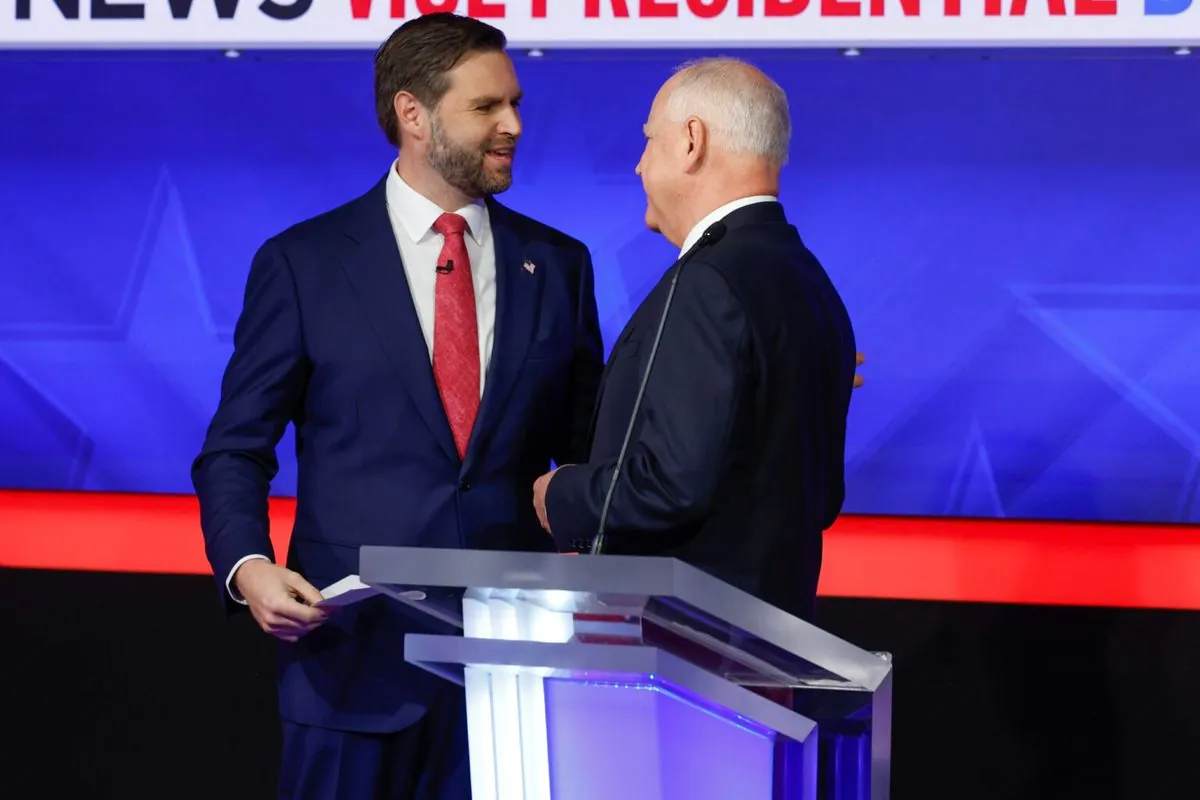In a recent vice-presidential debate, JD Vance, the Republican nominee and Ohio Senator, presented himself as a more polished version of Donald Trump's political ideology. This event, which took place approximately 9 months ago, highlighted the evolution of Trumpism within the Republican Party.
Vance, a Yale Law School graduate and author of the bestselling memoir "Hillbilly Elegy," demonstrated his debating skills by adeptly sidestepping challenging questions while maintaining Trump's controversial policy positions. His performance exemplified a new phase in Republican politics, where extreme policies are presented with a veneer of academic respectability.
One of the most contentious topics discussed was immigration. When asked about Trump's proposed mass deportation plan, Vance avoided directly addressing the question of separating families. Instead, he criticized the current administration's policies and made unsubstantiated claims about the number of undocumented immigrants in the country. This approach reflects the ongoing debate surrounding immigration reform, a issue that has been at the forefront of U.S. politics for decades.
Vance's ability to present controversial policies in a more palatable manner was evident throughout the debate. He managed to discuss topics such as healthcare and abortion without the inflammatory rhetoric often associated with Trump. For instance, when addressing the Affordable Care Act, Vance made the dubious claim that Trump had saved the legislation, despite the former president's repeated attempts to dismantle it.
The debate also touched on the sensitive topic of the 2020 election. When pressed to acknowledge Trump's defeat, Vance struggled to provide a clear answer, instead attempting to deflect attention to other issues. This reluctance to distance himself from Trump's unfounded claims about election integrity highlights the ongoing influence of the former president within the Republican Party.
"Can you just say Donald Trump lost the 2020 election?"
Vance's performance in the debate offers insights into the potential future of Trumpism. While maintaining the core policies and positions associated with Trump, Vance presented them with more polish and traditional political mannerisms. This approach may appeal to a broader audience while still retaining the support of Trump's base.
The evolution of Trumpism, as exemplified by Vance, raises questions about the future direction of the Republican Party. Founded in 1854, the party has undergone significant ideological shifts throughout its history. The current iteration, shaped by Trump's influence, appears to be moving towards a more polished presentation of controversial policies.
As the United States continues to grapple with issues such as immigration reform, healthcare, and election integrity, the impact of this refined Trumpism on the political landscape remains to be seen. The vice-presidential debate served as a preview of how these ideas might be packaged and presented in future elections, potentially reshaping the nature of political discourse in America.
